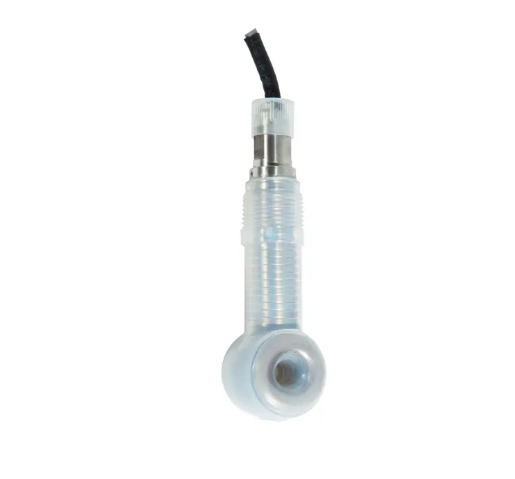Quality control is essential to manufacturing. The measurement of acidity and alkalinity, often referred to as pH levels, is critical to ensure product consistency and reliability. To achieve this, industries turn to Acid Alkali Analyzer, a vital tool in their quality control arsenal. In this blog, we will delve into the world of Acid Alkali Analyzers, specifically focusing on how they work, their importance in maintaining quality control, and tips for obtaining accurate results.
How Acid Alkali Analyzers Improve Quality Control in Manufacturing
Quality control is the linchpin of any manufacturing process. It ensures that products meet specifications, are safe, and consistently perform as intended. Acid Alkali Analyzers are a crucial component in achieving these objectives.
These analyzers are designed to measure the pH level of a solution accurately. pH measures the acidity or alkalinity of a substance on a scale from 0 to 14, with 7 being neutral. By determining the pH of a solution, manufacturers can fine-tune their processes to maintain consistent product quality.
One of the key advantages of Acid Alkali Analyzers is their ability to provide real-time data, allowing immediate adjustments to the manufacturing process. This ensures that any deviations from the desired pH range can be promptly corrected, preventing costly defects or product inconsistencies. Manufacturers can use this data to optimize their processes and minimize downtime, ultimately improving production efficiency.
Acid Alkali Analyzers in the Industry: Tips for Accurate Results
Obtaining accurate results with Acid Alkali Analyzers is vital to ensure the effectiveness of quality control in manufacturing. Here are some essential tips to achieve precise measurements:
1. Calibration: Regularly calibrating the analyzer with standard pH solutions is crucial. Calibration ensures that the device is accurately measuring pH levels. Failure to calibrate can lead to skewed results, potentially compromising product quality.
2. Sample Preparation: Proper sample preparation is essential. Ensure that the sample is free from contaminants that could affect the pH reading. Filtering, degassing, and temperature control can all play a role in obtaining accurate results.
3. Maintenance: Regular maintenance of the analyzer is necessary to keep it in peak working condition. Routine checks, cleaning, and sensor replacement, when needed, should be part of the maintenance plan.
4. User Training: Adequate training for personnel responsible for using the analyzer is vital. A well-trained operator is more likely to obtain accurate and reliable results.
5. Consider Sample Characteristics: Some samples may be more challenging to measure accurately due to their chemical composition. It’s important to consider the specific characteristics of the sample and, if necessary, use specialized pH electrodes or buffers to obtain precise measurements.
6. Record Keeping: Maintain detailed records of pH measurements. This not only helps in tracking trends over time but also assists in troubleshooting any issues that may arise during the manufacturing process.
Analyzing Corrosion with Acid Alkali Analyzer: Case Studies
Acid Alkali Analyzer is not limited to quality control alone. They also find applications in analyzing and preventing corrosion, which is a significant concern in many industries. Let’s explore a couple of case studies where Acid Alkali Analyzers have played a vital role in understanding and mitigating corrosion.
Case Study 1: Industrial Cooling Systems
In industrial cooling systems, the pH of the water used is a critical factor in preventing corrosion of pipes and equipment. The pH level should be maintained within a specific range to inhibit the formation of acidic or alkaline conditions that accelerate corrosion.
By continuously monitoring the pH of the cooling water with Acid Alkali Analyzers, operators can ensure that the water chemistry remains within the safe range. In the event of any pH fluctuations, the system can automatically inject chemicals to adjust the pH and prevent corrosion. This real-time control has proven to be highly effective in extending the lifespan of cooling system components and reducing maintenance costs.
Case Study 2: Oil and Gas Industry
In the oil and gas industry, pipelines and storage tanks are susceptible to corrosion due to the harsh chemical nature of the substances they handle. Acid Alkali Analyzers are used to monitor the pH of the fluids in these systems. Any shift in pH could indicate corrosion or contamination issues, allowing operators to take immediate action to prevent catastrophic failures.
Additionally, Acid Alkali Analyzers are used to monitor the pH of chemicals injected into pipelines to control corrosion. Accurate pH measurement is crucial in ensuring the effectiveness of these corrosion inhibitors.
Acid Alkali Analyzer Manufacturer: Shanghai BOQU Instrument Co., Ltd.
Shanghai BOQU Instrument Co., Ltd. is a reputable manufacturer of Acid Alkali Analyzers and a leading player in the field of analytical instruments. With a focus on innovation and quality, BOQU Instrument has developed a range of cutting-edge analyzers to cater to the diverse needs of industries across the globe.
Their Acid Alkali Analyzers are designed with precision and reliability in mind, making them an ideal choice for industries that demand accurate pH measurements. Whether it’s for quality control in manufacturing or corrosion prevention in critical applications, BOQU Instrument’s analyzers have proven their worth.
Features That Set DDG-GYW Apart: Best Acid Alkali Analyzer
1. Exceptional Performance in Harsh Environments: The DDG-GYW sensor is crafted using chemical-resistant materials, making it impervious to polarized interference and immune to the effects of dirt, grime, and fouling. It excels even in environments with high concentrations of acids, such as fuming sulfuric acid.
2. High Accuracy and Stability: The DDG-GYW offers an outstanding level of precision and stability, making it ideal for critical applications. The sensor’s performance ensures the highest level of accuracy, enabling confident decision-making.
3. Clog and Polarization Error Elimination: Traditional sensors often face issues related to clogging and polarization errors. However, the DDG-GYW employs cutting-edge conductivity sensor technology to eliminate these problems, guaranteeing consistent, reliable results.
4. Long-term Stability: With its large aperture sensor, the DDG-GYW exhibits long-term stability. This ensures that the instrument will provide dependable service over an extended period.
5. Flexible Installation Options: The DDG-GYW is designed with flexibility in mind. It accommodates a wide range of brackets and utilizes a common bulkhead mounting structure, allowing for various installation methods.
Conclusion
In conclusion, Acid Alkali Analyzer is an invaluable tool in the manufacturing industry. They play a pivotal role in maintaining quality control, preventing corrosion, and ensuring the integrity of various industrial processes. To maximize their benefits, it is essential to follow best practices in calibration, sample preparation, maintenance, and operator training. With the right approach and the support of reliable manufacturers like Shanghai BOQU Instrument Co., Ltd., industries can continue to produce high-quality products and maintain the safety and efficiency of their operations.
Post time: Nov-09-2023





